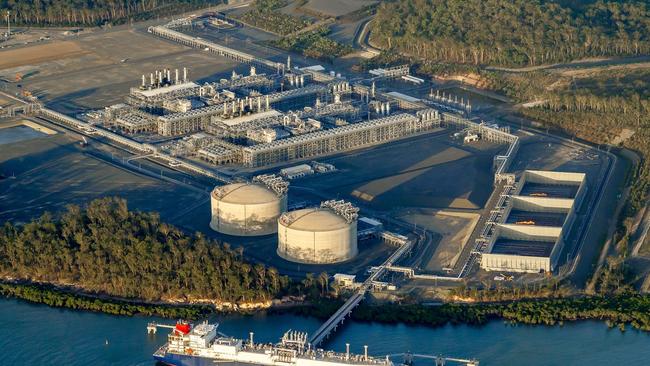
What would it mean for household energy bills, and to Australian manufacturing and mining businesses that rely on gas?
And what does it mean for Australia’s economy?
As we head towards the next federal election with the Greens and populist independents threatening to hold the next government to ransom with their “no new gas” platform, it’s imperative that Australians understand the consequences of these irresponsible calls.
It’s unlikely Australians will want to vote for higher energy prices, the risk of blackouts, increased emissions, and the loss of tens of thousands of jobs as the nation’s mining and manufacturing grinds to a halt within the next decade.
Yet this is exactly what we’ll get if the Greens get their way.
Australian Energy Producers asked independent energy analyst EnergyQuest to model the Greens’ policy of banning new investments in gas projects.
The results are alarming.
EnergyQuest found the Greens’ policy would cause “major economic disruption” around Australia.
Their analysis found the lights could go out for millions of homes and businesses relying on stable electricity along the east coast and southern Australia as gas supply for power generation runs out by 2029.
Or the real irony: the Greens’ policy would require coal and diesel to replace gas in power generation to avoid blackouts, increasing emissions by 35 to 75 per cent and slowing the energy transformation. Australia’s industrial heartland would be wiped out, threatening tens of thousands of manufacturing jobs, with no commercially viable alternatives to natural gas for some industrial processes.
Western Australia would be forced to abandon plans to phase out coal-fired power generation, while its mining sector – the engine room of the state’s economy – would be devastated. Gas provides about half of the energy used by WA’s mining industry. In the Northern Territory, the massive economic and energy security potential of the Beetaloo Basin would go unrealised.
Queensland’s long-term LNG export contracts would be torn up, doing untold damage to Australia’s global reputation and ripping billions out of the Queensland economy. Every LNG vessel that leaves Gladstone represents about $9m in spending with local businesses and $4m in royalties for the Queensland government.
This is the devastating scenario for Australia’s economy that would begin unfolding in as little as 24 months. Anyone following Australia’s energy system pressures in recent years knows that this is no exaggeration. Australia can ill-afford delays to investment in new gas supply. The federal government’s Future Gas Strategy released in May was clear that the Australian economy would need gas to 2050 and beyond, and investment in new gas supply is urgently needed to meet demand and replace declining production from older gas fields.
The Australian Energy Market Operator has warned that the east coast will need more gas for electricity as a back-up for renewables and to avoid looming shortfalls in Victoria and NSW. And the Australian Competition & Consumer Commission has called for the lifting of development bans and the fast-tracking of approvals to bring on new gas supply.
The Greens’ reckless policy will mean gas shortfalls are not only inevitable – but they will also hit sooner and harder.
And the devastating impacts on the economy wouldn’t end at gas users. Australia’s gas industry is a major economic driver, especially in regional areas. Gas companies have invested hundreds of billions of dollars in Australia.
This investment has created thousands of jobs and last year delivered $17bn directly to federal and state governments, while the industry spent $40bn with businesses around the country. Consider the Gladstone LNG export projects, which have helped the Queensland gas industry support around 67,000 workers along the supply chain.
EnergyQuest found LNG exports could be disrupted within two years, halved within four years and finished within 12 years. Those jobs would disappear along with the $1.4bn a year in royalties pouring into the Queensland budget, denying the state vital funding for hospitals, schools and roads. On the west coast, gas is the source of 60 per cent of the state’s electricity generation, but EnergyQuest found this gas supply would run out by the early 2030s.
In a major threat to WA’s mining sector – and the economic fortunes of the state and the nation – gas for mining and manufacturing would run out by the mid-2030s. Both sides of politics, along with gas producers and users, energy regulators, and everyone with skin in the game, recognise the urgent need for investment in gas exploration, production and infrastructure. The fact is that the gas industry is stepping up to deliver for the nation’s energy and economic security, while investing in cleaner energy technologies such as carbon capture and storage and low-carbon hydrogen.
The Greens are the outliers.
Their sloganeering would smash Australia’s economic and energy security and increase emissions, derailing the national pathway to a net zero economy.
Samantha McCulloch is the Chief Executive of Australian Energy Producers.




“No new gas.” It’s a short, simple slogan that the Australian Greens and like-minded activist groups like to throw around, but what does it actually mean?